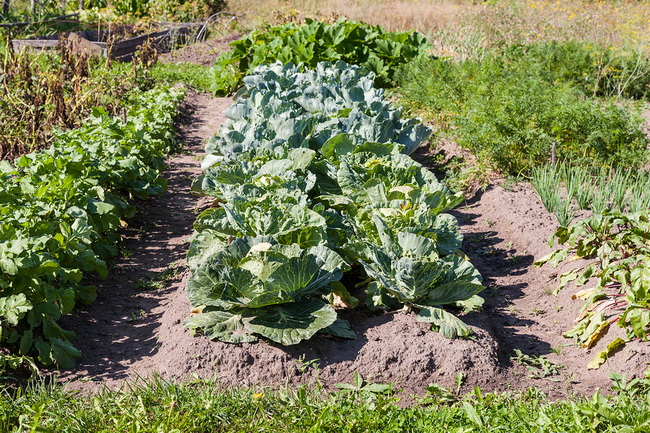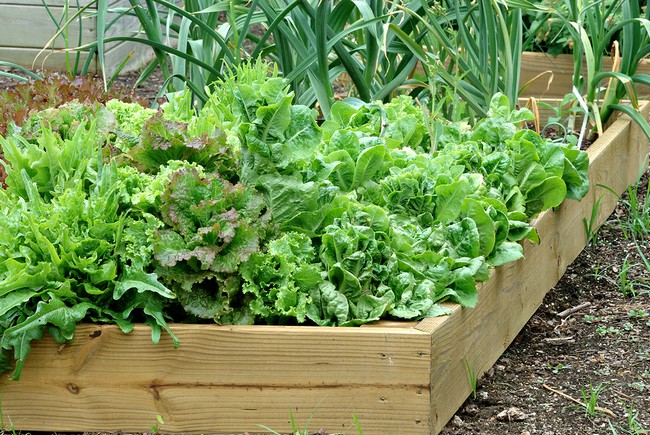- Make It Yourself Lavender Heart-Shaped Bath Bombs!
- 20 Things You Never Knew About “Down There”
- 12 Best Foods For Those Suffering From Arthritis Pain
- 12 Personal Hygiene Mistakes Almost Everyone Makes (Mom Never Told You About #4!)
- 15 Medicinal Plants And Herbs From The Cherokee People
- 12 Mind-Blowing Benefits Of Drinking Coconut Water During Pregnancy
- 12 Outstanding Winter Foods That Won’t Fatten You Up Like A Christmas Turkey
MIY All Natural Bug Spray/Pesticide for Your Garden

Photo credit: bigstock.com
Gardening is one of the most enjoyable ways to get free exercise, get your vitamin D from the sun, and provide your family with organic fruits, vegetables, and flowers all in one fell swoop!
Every garden has its issues however, one of them being insects. These plague everyone at one time or another. Many people hurry down to their local home improvement store and pick up some type of pesticide or even organic pesticide soap (which really isn’t all that organic if you read the labels!) These types of sprays are not only toxic and dangerous, they are really expensive! One of the main reasons you most likely started your organic garden is to provide your family with produce that is free of dangerous pesticides, so why use them?
We have a terrific alternative for your garden. Completely safe and natural. Take a look at our MIY natural pesticide recipe.
Ingredients:
- 1 Small Onion, any color
- 1 Large clove of garlic
- 1 Tablespoon of liquid castile soap
- 1 Teaspoon of powdered cayenne pepper
- 1 Quart of water
Instructions:
- Put the onion and garlic in your blender and blend on high until it’s liquid
- Add your water and the cayenne pepper
- Cover and allow to set for one hour
- Strain the mixture through as cheesecloth
- Add your castile soap
- Pour everything in a spray bottle
- Shake well before each use!
Continue to Page 2

Photo credit: bigstock.com
There are some other means of natural pest control if you would like to try them. Perhaps one of the oldest methods is called companion planting. This method uses plants that bugs do not like and place them next to your vegetable plants. Some common companion plants:
- If you have planted cabbage, cucumbers, or onions, chamomile is a great companion plant. Not only does it improve the flavor, you can harvest the flowers for later use.
- Catnip is a great herb to plant near squash and cucumbers. It naturally repels aphids and those ugly squash bugs. Dry catnip leaves for a tasty tea, fun for your cat, and can even be used in a spray bottle with a bit of soap and water as a natural pest control spray.
- Plant marigolds all over your garden. Many pests do not like the smell of marigolds.
- Nasturtiums are also terrific for tomatoes, cabbage, cucumbers, squash, and melons. They are super pretty as garden flowers as well.
- Dill is perfect for cabbage, lettuce, and cucumbers. Not only does it help repel bugs, but you can pick it and make dill pickles later. Never plant dill near tomatoes however.
- Planting basil with your tomatoes will improve the flavor of your tomatoes as well as increase your yield. You can also plant basil near peppers.
- Borage is perfect for both cabbage and tomatoes and it repels those hideous tomato horn worms and cabbage moths. It’s great for your strawberries as well.
- Radishes can be planted all over your garden. Planting radishes next to your cucumber plants will help keep cucumber beetles away from your veggies.
- Onions are another great way to keep pests away from your broccoli, peppers, cucumbers, tomatoes, and strawberries.
- Planting sunflowers next to your cucumbers, peas, and beans will provide a natural trellis for these veggies to climb and a natural trap for many garden pests, including aphids.
Continue to Page 3

Photo credit: bigstock.com
There are a few other natural sprays that have been known to help kill or deter insects. Some of the best are:
v Dissolve several teaspoons of baking soda in water and spray to kill and prevent fungus or powdery mildew on your plants.
v Lemon balm tea is pretty effective at killing aphids and squash bugs. Apply two or three times per week as needed.
v Make a tea from powdered kelp and it will help kill aphids and deter Japanese Beetles. This is also very nourishing to your plants so spray them at least once per week or more often if pests are present.
v A mixture of water and some neem oil is another good option for killing and deterring many garden pests.
v Diatomaceous Earth is a super, all purpose insect killer for any and all insects however, be forewarned, it kills everything, including butterflies, bees, and dragonflies, so be very discriminating with its use. Simply sprinkle on infested plants as needed. You will need to reapply after rain or after watering. Read more about DIY insect traps.
































